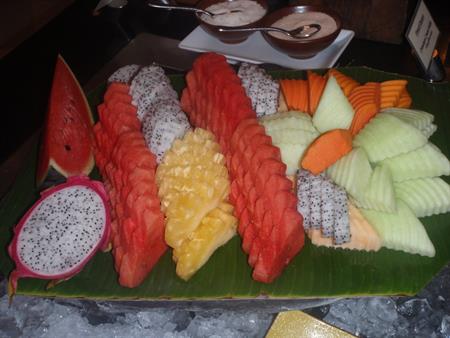Eating Tips
TIPS FOR HEALTHY EATING
In the maintenance of good health there are many important factors, including:
- a positive approach and the right mental attitude.
- good food and the right approach to nutrition.
- fresh air, rest and exercise.
- a good environment to live in.
- the right medical care when we need it.

Most people in developed western societies do not eat enough of the following foods:
• The Salad Vegetables
(these are rich in potassium and the alkaline minerals). Celery and lettuce, raw carrots and beetroot are some with top taste and food values. The raw carrots and beetroot are delicious if added to salads in either the grated or chopped form. Fresh green beans (sliced), together with tomatoes, avocado, mushrooms, asparagus, parsley, sweetcorn and watermelon are also worth including. Freshly grown bean sprouts will make an interesting addition to the normal salad mix.
• The Alkaline Fruits
(Again for their levels of potassium and the alkaline minerals). Bananas, soft prunes and ripe pears are three with good food values and the list should also include sultanas and raisins, apricots, peaches, cherries, cantaloupe (rockmelon) and paw paw.
• Green Leafy Vegetables and Root Vegetables
Spinach, bok choy and other similar vegetables provide iron and a variety of other essential nutrients, vitamins and minerals. Root vegetables such as pumpkin, chokos, potato, sweet potato, yam, beetroot are also very important in a healthy diet as they tend to be lower in simple sugars and more nutrient concentrated that sweet fruits and watery vegetables such as lettuce. the root vegetables and all forms of peas, beans and lentils (fresh or dried).
• Brown Rice and Wholegrain Cereals
Many people get there grains and pasta etc in processed ‘white’ varieties. This takes away the earthy/nutty taste, often is more aesthetically pleasing and removes practically all fibre content. Many of the grains (including rice, rye, wheat, oats and barley) are now available in the "flaked" or "ribbed" form making them much easier to use in muesli, bread making, etc. If you suffer gluten intolerance, try non-gluten grains, such as rice, millet, soy and maize. Normal wheat flour can be substituted for a variety of non-gluten powders, such as potato powder, rice powder and others. Buckwheat is another good grain that is low in gluten. Boughul (lebanese cracked wheat) is delicious for making up "Tabouli" salad mixes.
• Raw nuts, seeds and legumes
Eaten in many Middle Eastern and Asian countries, these foods are often omitted from other western diets. In fact nuts and seeds can supply healthy fats, a variety of nutrients and legumes in particular are one of the very best sources of fibre. These foods also tend to be quite filling..
• Cultured milk products and the dairy foods
Including yoghurts, buttermilk and all forms of cheese. The "culturing" process appears to partially digest milk products and makes them easier for our stomachs to handle. If an allergy to cow’s milk is suspected, then either goat’s milk or soy milk products, including yogurt, tofu and bean curd can generally be substituted.
• Meat
For the average person there is a strong argument for the inclusion of high quality meats in our diet on something like the following basis:
- At least one, perhaps two meals with red meat a week,
- one to two portions of white meat such as chicken or turkey each week
- at the very least, one fish meal each week.
The main problem with meat intake in western countries is the over-consumption of red meats. Either as very large portions in a meal lacking adequate vegetable side-dishes, in combination with dairy products such as creamy sauces which can make digestion more difficult and result in less efficient protein digestion and also many people simply include red meat in too many of their meals. Many people also exclude fish from their meals, which is not advisable. Fish are an excellent source of either good fats or with white fish are very low in fat. They are protein rich and provide a range of nutrients. If people do not eat meat, then they should make sure that they get a supplementary level of B12, iron and folic acid with their diet. Mushrooms are a good source of B12 for vegetarians
Learn More About Nutrition -Start with our Nutrition I Course(click here)
[15/01/2025 22:38:52]
More from ACS
Learn to eat a balanced diet.
Are there things you just should not eat?